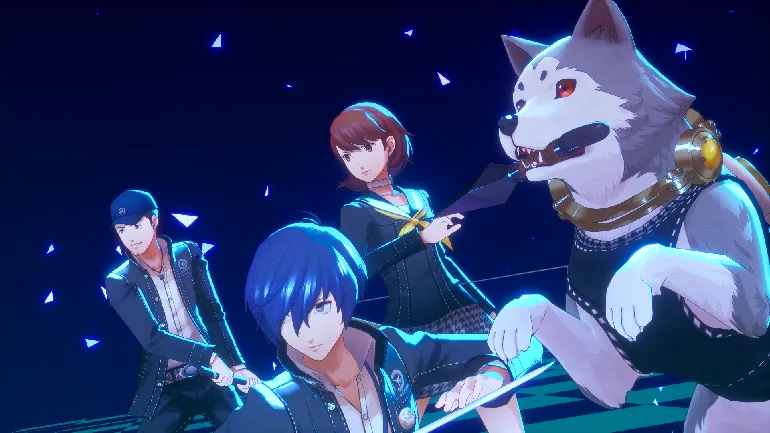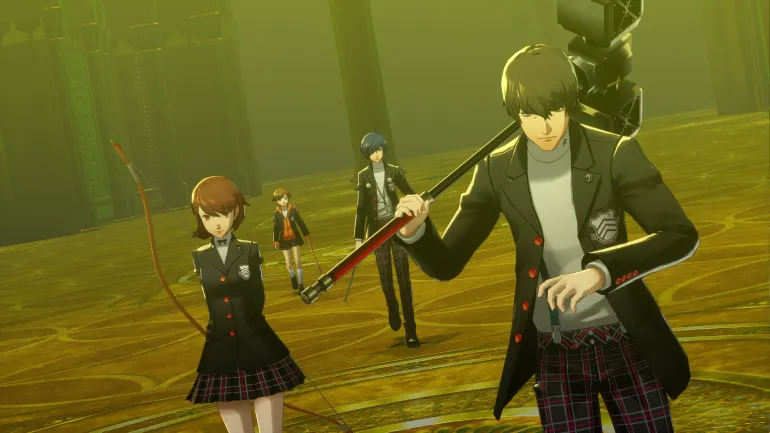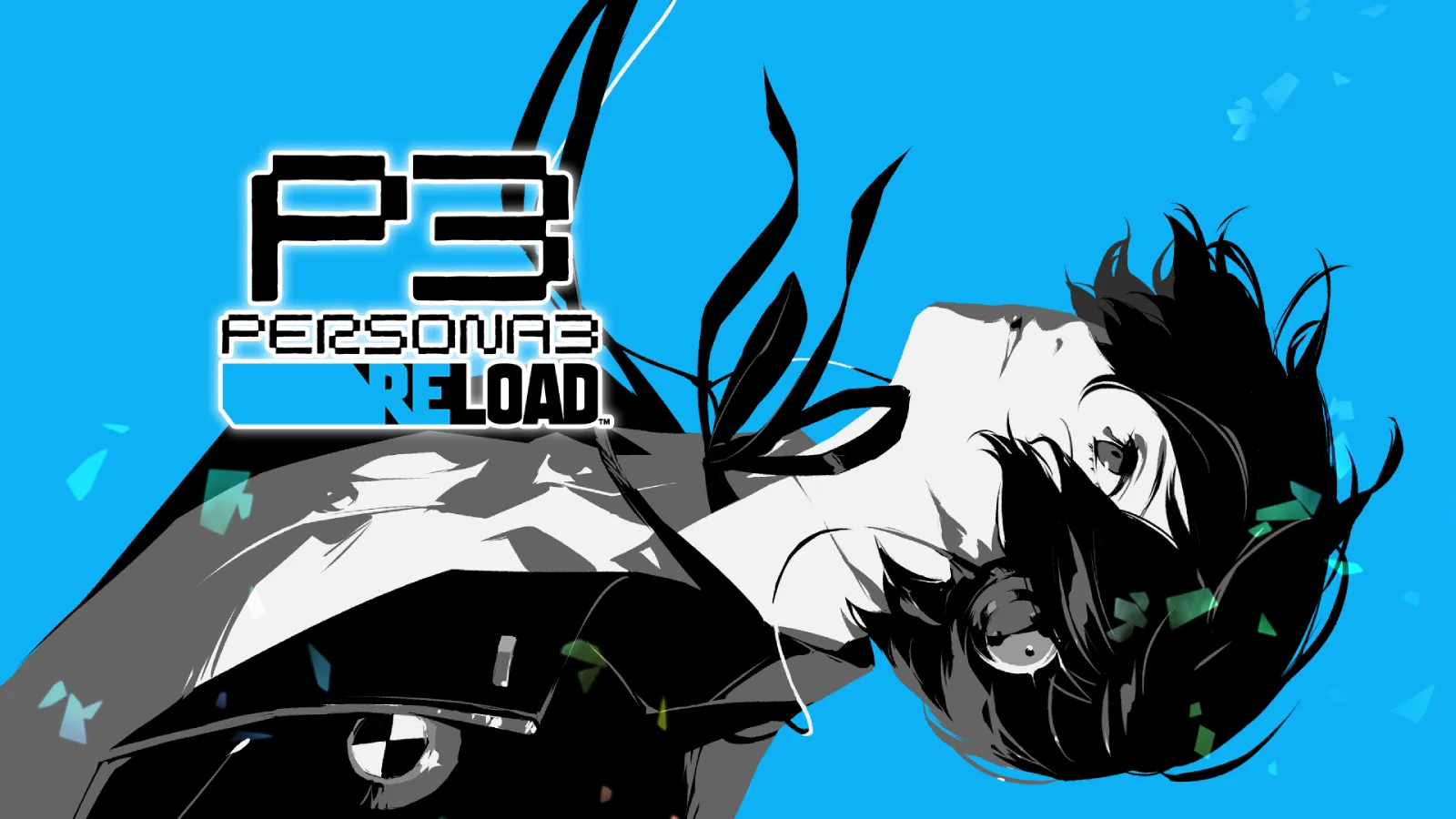Persona 3 has always held a special place in the hearts of fans, and Persona 3 Reload only solidifies its status as the best installment in the series. This remake takes the already phenomenal 2006 RPG and elevates it to new heights.
The stunning visual upgrade, enhanced mechanics, and fresh music breathe new life into the game, reminding players why it was so groundbreaking when it first released. But Persona 3 Reload is more than just a cosmetic upgrade; it is the ultimate realization of an iconic story that showcases the brilliance that Atlus has struggled to replicate in subsequent releases.
Persona, a popular video game franchise, has always revolved around high-school students battling supernatural forces. However, it was in Persona 3 that the series introduced life-management elements, which have now become a central aspect of the franchise.
Persona 3: Reload offers a captivating opportunity to relive the past when Persona was still closely connected to its origins as a subseries of Megami Tensei, while also carving out its own distinct identity. This remake serves as a testament to the remarkable progress the series has made over the years, while acknowledging the exciting prospects that lie ahead for its future development.
In Persona 3 Reload, the core story remains intact as players assume the role of Makoto Yuki, a transfer student who enrolls in Gekkoukan High School situated in the enchanting coastal city of Iwatodai. Upon his arrival, Makoto is abruptly thrust into a captivating supernatural phenomenon known as the Dark Hour.
This enigmatic period, which occurs after midnight, sees most people transform into lifeless coffins. However, Makoto and a select few of his classmates possess the rare ability to retain their consciousness during this peculiar time and harness the power of Persona, which are living embodiments of their inner selves.
With their newfound powers, the group embarks on a quest to combat menacing creatures called Shadows, with the ultimate goal of putting an end to the Dark Hour once and for all. While the overarching premise remains unaltered, the entire game has been revamped, resulting in a visually stunning, sonically captivating, and immensely enjoyable experience.
Persona 5 Reload is a perfect example of the “this looks like how I imagined it as a kid” phenomenon of remakes. The game's visuals are absolutely stunning, capturing the essence of what made the original game so captivating. The stylish menus, vibrant color palettes, and seamless transitions all contribute to a truly modern Persona experience.
Despite the enhancements, there is no sense of losing the original game's charm. Instead, Persona 5 Reload feels like a contemporary realization of what made the game special in the first place. It is a testament to the artistry and attention to detail of the developers, who have successfully bridged the gap between nostalgia and modernity.
Persona 3 presents a refreshing challenge in both its combat and narrative themes, a fact often overlooked due to the series' growing popularity and fanbase. Unlike its successors, the game's turn-based combat relies on strategic decision-making rather than gimmick fights.
Instead of mindlessly exploiting elemental weaknesses, Persona 3 forces players to contend with enemies that can absorb, resist, or reflect certain abilities, as well as employ status effects and predictable behaviors to trap them in intense battles. Moreover, the addition of the Theurgy system introduces a new layer of complexity, granting each party member a unique and powerful ultimate ability. In this way, Persona 3 manages to strike a delicate balance between challenge and innovation within its combat mechanics.
One fight I experienced during the Dark Hour served as a powerful reminder of the importance of adaptability. In this particular encounter, I found myself facing a formidable shadow that possessed the uncanny ability to absorb all physical attacks directed towards it. This unique attribute enabled the shadow to heal itself with each punch or slash it endured. Consequently, my team was forced to rely solely on magic attacks in order to take it down. However, the shadow possessed another dangerous ability – the power to inflict Rage upon its opponents.
This resulted in a loss of control over my party's actions for a turn or two. Unfortunately, while I was unable to steer the actions of my allies, the shadow cunningly manipulated them into attacking it. By the time I regained control, the shadow had completely healed itself, leaving us at a severe disadvantage. This encounter emphasized the need for flexibility and the importance of strategizing and adapting to unforeseen circumstances in order to emerge victorious.

As I engaged in yet another battle in Persona 5, I couldn't help but feel a sense of nostalgia for the earlier games in the series. This particular fight may not have been a grand, epic showdown, but it reminded me of the difficulty and challenge that Persona games used to present. It seemed that over time, the series had become more accessible and user-friendly, making Persona 3 stand out even more in retrospect.
While the changes in recent entries have certainly brought their own unique elements to the table, they haven't quite captured the same magic and allure that the game that started it all did. Persona 3 will forever hold a special place in the hearts of fans, reminding us of the captivating and challenging experiences that the series once offered.
Returning to Persona 3 after indulging in the numerous spin-offs of Persona 4 and 5, one cannot help but notice the series' adherence to a formula. However, revisiting the story of Makoto and the SEES (Specialized Extracurricular Execution Squad) proves to be a refreshing experience, as its structure and resolutions still possess a sense of uniqueness.
Unlike their counterparts in Persona 4 and 5, the members of the SEES are not discarded by the plot once their designated chapters have concluded. Instead, their narratives are intricately intertwined, making each character significant and preventing them from becoming mere afterthoughts in the latter half of the game.
Persona 3 Reload is a game that truly understands the deep connection fans have with its party members and the importance of the social elements within the series. It manages to strike a balance between these elements and the weighty narrative, never compromising the integrity of the story. One of the ways it achieves this is through the hangouts you can have with your party members. For example, you can make tea with Mitsuru, who is usually quite reserved, and learn more about her privileged upbringing.
Similarly, you can watch old boxing matches with Akihiko, the resident jock. These interactions not only provide tangible benefits, such as resources for dungeon crawls, but also help to improve your social stats, such as courage, charm, or academics. What I appreciate the most about Persona 3 Reload is how it allows me to spend quality time with characters I already know and love, without the high stakes that usually accompany our interactions.
One of the best aspects of Persona 5 is the casual encounters with the game's cast, and it is a pleasant surprise to see them included in the Reload version. However, the remake goes beyond just the small interactions to provide a more well-rounded experience for the characters. One of the original game's shortcomings was the lack of social link-style arcs for the male party members, but this issue is rectified in Reload.
By creating full arcs for these characters, the remake ensures that players can truly connect with and understand the male party members on a deeper level. This addition enhances the overall immersion of the game and allows for a more complete and satisfying experience.
One of the standout features of Persona 3 Portable's remake, Reload, is the inclusion of new “linked episodes” storylines for the male characters of SEES. In the original game, these characters were largely left out of the social elements that have become a series standard. However, in Reload, players now have the opportunity to delve deeper into the lives and personalities of Akihiko, Junpei, Ken, Shinjiro, and even the lovable dog, Koromaru.
These new storylines provide a fresh perspective and allow players to form stronger connections with each character. It is without a doubt the best aspect of Reload, adding depth and richness to an already beloved game.
Persona 3 Reload presents a disappointing contrast between the new and old side stories, revealing the game's age despite its updated visuals. While some of the original social links in Persona 3 are compelling and well-crafted, such as the poignant tale of an elderly couple running a bookstore while mourning their lost son, or the touching friendship between Makoto and a young man coping with a terminal illness, many of the social links fail to deliver satisfying dialogue choices or meaningful resolutions.
For instance, the storyline involving fellow student Kenji's pursuit of a romantic relationship with a teacher feels uncomfortable and forced. Furthermore, the interaction with Maiko, a child at a local playground who reveals her abusive home life, lacks depth as the dialogue options do not offer any meaningful support or intervention.
When comparing the new stories for the boys with the old stories for the girls in the party, the contrast in writing becomes strikingly apparent. While each of these women are well-rounded characters in Persona 3's main plot, their social links remain mostly the same as they were in the original 2006 version.
This discrepancy is particularly evident when examining the heavy storylines that Akihiko and Junpei navigate, which feel intimately connected to Persona 3's themes of confronting death and avoiding nihilism. In contrast, the arcs of Yukari, Fuuka, and Mitsuru could have greatly benefited from a modern rewrite to align them with their male counterparts. Even Aigis, the shadow-fighting android, though still impressive, fails to deliver the same level of gravitas in her late-game revelations.
Even after all these years, Persona 3's story remains just as relevant as it did in 2006, despite the varying quality of the social links. The theme of death is deeply ingrained in every aspect of the game. Whether it is embraced or feared by the characters, the game's overall message revolves around the understanding that death is looming over each and every one of us.
This is exemplified by the unique way in which the members of SEES summon their Personas, by putting a fake gun to their heads and pulling the trigger. The presence of death, in all its forms, shapes every moment spent in Iwatodai. Whether directly confronting it while speaking to a dying man in a shrine or simply considering the constant threat of it before heading into battle, the concept of death permeates every facet of Persona 3's narrative.
Persona 3, with its dark motif and eerie setting, may initially seem like a game about death. However, upon closer inspection, it becomes clear that the true essence of the game lies in embracing life. Just as SEES, the group of protagonists, bravely ascends the tower infested with shadows during the Dark Hour, we too face our own struggles and fight for every moment of existence.
The social sim elements in Persona 3 serve as a reminder that life, no matter how fleeting, is worth cherishing because of the connections we forge with others. As time has passed since the game's release, this message has only grown more poignant and relevant, reinforcing the importance of living fully and appreciating the precious moments we have.
The world has undergone a profound transformation since the days of walking through the streets of Iwatodai, witnessing the devastating effects of the mind-altering Apathy Syndrome. However, this newfound perspective is grounded in the experiences of living through a global pandemic that reduced millions of individuals to mere statistics, dismissed and overlooked.
The sight of numerous forms of grief, experienced by both the members of SEES and the citizens of Iwatodai, elicits a different response when one has personally endured the loss of a beloved father or a cherished childhood pet. As a result, the world has irrevocably changed, and so have
. No longer the angsty loner who harbored a sense of indifference towards life and death, I now find the strength to persevere through my own despair. This newfound resilience is fueled by the support and love of those who lift me up, compelling me to reciprocate and uplift others in return.


The segment in Persona 3 where the words “The power of friendship surges within you” appear during a fight has always resonated with me. It serves as a constant reminder that even in the face of adversity, the support and encouragement of those around us can make all the difference.
SEES' journey in the game showcases the various forms that fatalistic nihilism can take, but it also highlights the importance of connection and camaraderie. When I first played Persona 3, I didn't feel like I had much to fight for, but experiencing the game's emphasis on friendship and the value of having something worth living for has changed my perspective. It is this realization that keeps me going, even in the darkest of times.
The thematic consistency of Persona 3 sets it apart from its sequels, as it explores the concept of what gives life meaning in the face of an inevitable end. In contrast, Persona 4 focuses on accepting oneself, dismissing the hard truths its characters come to terms with as merely a phase. Similarly, Persona 5 aims to fight against injustice for the underprivileged, yet subjects these same victims to abuse by their own friends.
However, Persona 3 keeps every member of its cast as active participants, maintaining a strong thematic coherence throughout the game. The fact that Persona 3 Portable successfully incorporates the strengths of its sequels without falling into the same traps is a testament to the strength and timelessness of its source material.
Despite its age, Persona 3 Reload still manages to impress me with its staying power. Having not played it in over ten years, I am amazed at how well it holds up. While I have a deep affection for Persona 4 and 5, it seems that they may have learned some of the wrong lessons from Persona 3.
The social simulation elements continue to be the main attraction of the series, but it sometimes feels like the games themselves view the party members as transient. Although they have their dedicated dungeons and moments of focus, they often fade into the background until you seek them out for their personal time off or when the whole group comes together for a vacation or school trip.
Verdict
Persona 3 Reload stands out as a remarkable example of a game that has successfully learned from its previous iterations. The original story of the game ensures that all characters remain in the spotlight, allowing players to truly connect with them on a deeper level. The introduction of new elements to the social simulation aspects of the game enhances the overall experience, transforming mere acquaintances into meaningful connections. It is astonishing how, even after more than ten years of various spin-offs and adventures, Persona 3 Reload manages to present the most refined and compelling version of Persona's exceptional cast.
Giveaway
Embark on a journey back to the captivating world of Persona 3 with our exclusive giveaway of Persona 3 Reload! Immerse yourself in the stunning visual upgrades, enhanced mechanics, and fresh music that breathe new life into this iconic RPG. We're thrilled to invite you to join our giveaway and stand a chance to experience the ultimate realization of Persona 3's timeless narrative. Don't miss out on the opportunity to relive the magic that made Persona 3 the best installment in the series. Simply follow the link to enter the giveaway: Persona 3 Reload Giveaway.






